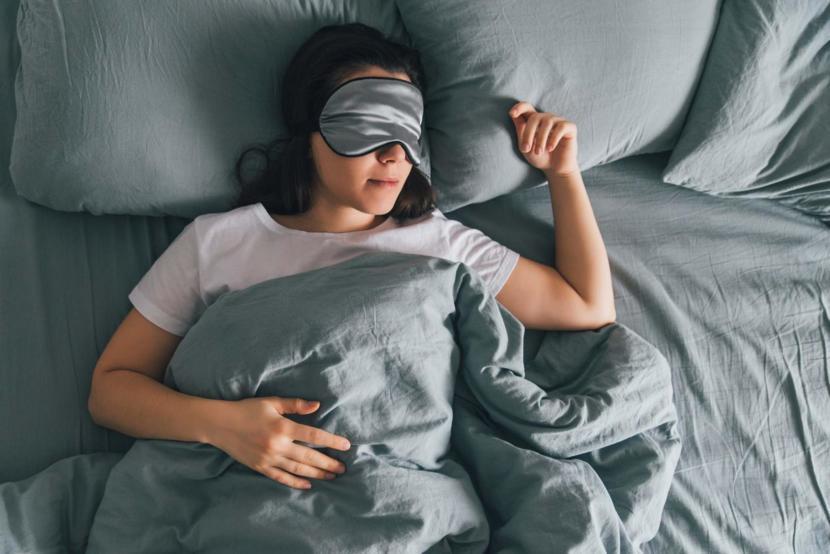7 Things That Can Worsen Your Sleep Apnea

Dr. Monica Tadros, MD, a rhinoplasty specialist who is a distinguished Facial Plastic Surgeon & Reconstructive Surgeon and Educator. ENT doctor Tadros has offices located on Park Avenue in Manhattan and in Bergen County, New Jersey. Nose surgeon Dr. Tadros specializes in rhinoplasty (nose job), sinus surgery, otoplasty,... more
Sleep apnea is a serious health condition that interferes with normal breathing during the night’s sleep. With this disease, you suddenly stop breathing until your brain wakes you up. Sleep apnea can make you feel extremely tired in the morning and increase the risk of serious health conditions.
Several habits and daily activities can worsen your symptoms of sleep apnea and increase the risk of related health conditions. Avoiding them is crucial to preserve your health. Keep reading and discover 7 things that can aggravate the symptoms of sleep apnea and impair your sense of well-being.
1. Sleep Deprivation
People who don’t get enough sleep are more prone to the development of other sleep disorders, like sleep apnea. When you are sleep deprived, your body tries to reach the deepest phase of sleep called rapid eye movement sleep to compensate for lack of sleep. In this phase, you become more likely to have sleep apnea. On the other hand, sleep apnea often results in poor sleep quality, creating a cruel cycle.
2. Weight Gain
Sleep apnea is a major risk factor for gaining excessive weight. Sleep apnea often depletes you of normal sleeping and causes frequent night awakenings. If you cannot get enough rest when sleeping, your body tries to compensate for it with the help of food. This leads to unhealthy food cravings and overeating, thereby resulting in weight gain.
However, weight gain can actually worsen the symptoms of sleep apnea. Excessive weight can narrow your airways and prevent you from normal breathing during sleep. Losing excessive weight can help relieve and even cure sleep apnea.
3. Sleep Position
Your sleeping position is one of the major risk factors for developing sleep apnea. People who prefer sleeping on their back most often experience episodes of sleep apnea. When you sleep on your back, your tongue tends to relax back further and block the airways. This can trigger or worsen the symptoms of sleep apnea. Sleeping on your side or using special oral devices can help prevent sleep apnea and improve the quality of the night’s sleep.
4. Alcohol
Alcohol is one of those things that can worsen the symptoms of your sleep apnea. It increases the relaxation of the muscles of your throat and tongue. This can make your airways more vulnerable to obstruction and sleep apnea. For this reason, it is recommended to not consume alcohol before bedtime. This can help prevent and relieve the symptoms of sleep apnea. Moreover, cutting your alcohol intake can help improve overall well-being.
5. Anatomy
Sometimes, the anatomy of your airways can play a role in the risk of developing sleep apnea. The anatomy abnormalities like a deviated septum, enlarged tonsils, and narrower than normal airways are the leading causes of obstructive sleep apnea. While sleep apnea commonly affects adults, people with unusual airway anatomy can also cause sleep apnea in children.
6. Medications
There are several types of medications that can make the symptoms of sleep apnea worse. This includes muscle relaxants, sleep medications, and prescription painkillers (opioids). These medications relax the muscles in your throat and make you more prone to the obstruction of the airways. Besides, people taking blood pressure or diabetes medications are more prone to developing sleep apnea. Moreover, the symptoms of sleep apnea can worsen the symptoms of high blood pressure and diabetes.
7. Smoking
Do you need another reason to quit smoking? Here it is. People who smoke are especially prone to problems with airways and particularly, sleep apnea. Chemicals from the cigarette smoke irritate the upper airways and can make this area swell over time. Besides, smoking can increase your risk of chronic obstructive pulmonary disease, like asthma. This can also trigger sleep apnea.







